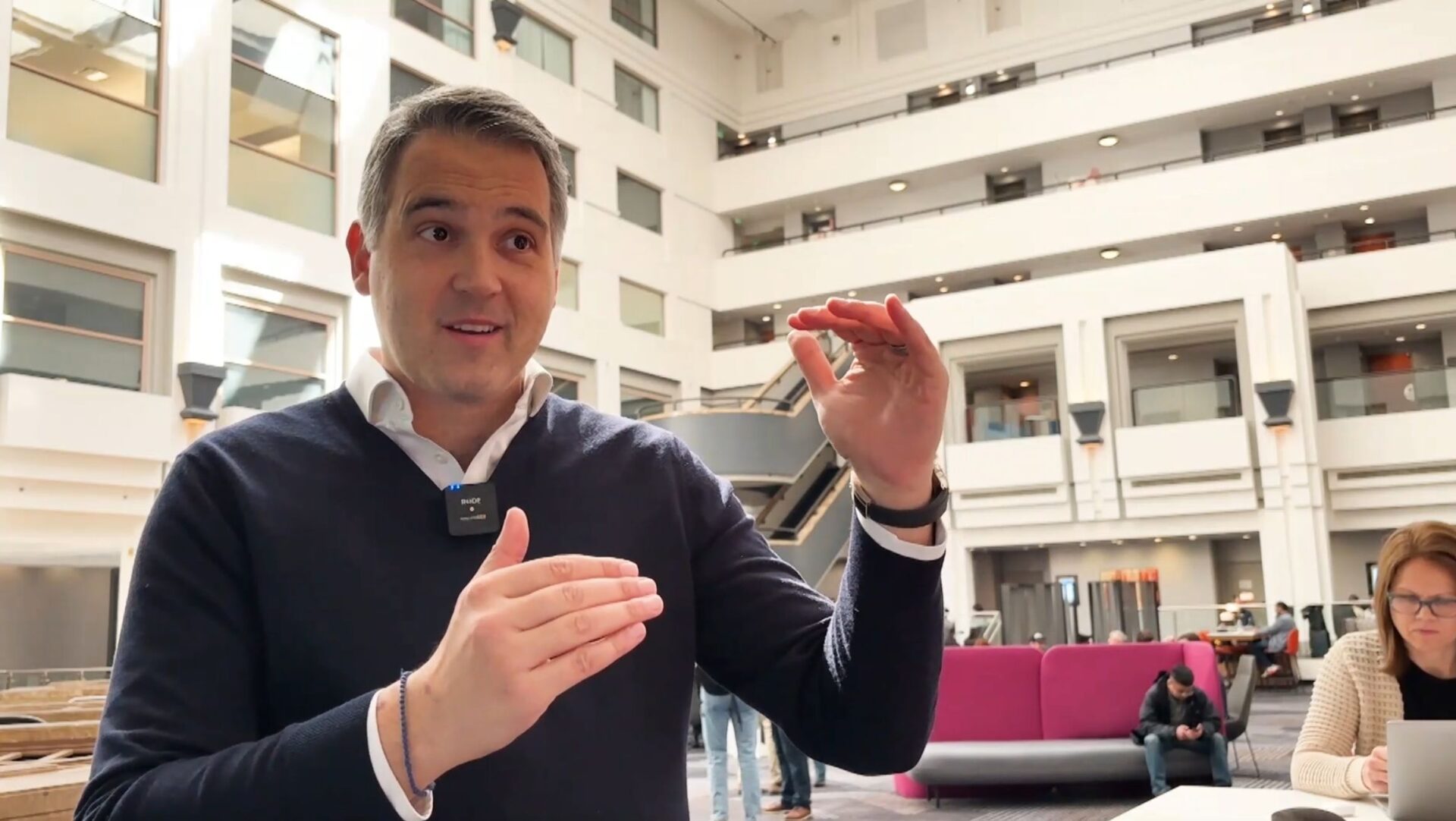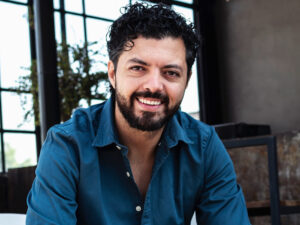It’s fair to say that investor sentiment in foodtech has soured somewhat in recent years, but specialist investors are in it for the long haul, says Synthesis Capital.
AgFunderNews (AFN) caught up with cofounder Costa Yiannoulis (CY) to talk foodtech investing, biomanufacturing, AI, and alt protein at the Future Food-Tech summit in San Francisco in an interview recorded shortly before the Trump administration’s on-and-off-again tariffs rattled markets around the world.
AFN: Investors got their fingers burned backing some pioneering firms in alt protein. Do you see a second wave of leaner, smarter startups in these fields succeeding?
CY: The first wave of these companies in this space, which is now over a decade old, they understood the problem but they didn’t have the right solutions. We were also in a low interest rate, grow at any cost environment, and all sorts of business fundamentals weren’t aligned. So that didn’t work out.
Are we seeing a second wave? Yes. The reasons that these companies exist are still there, and are maybe even more acute now. And founders have their head screwed on right in terms of burn, growing slowly, how much cash they know they’re able to raise, building more solid foundations for their businesses.
And for us as investors with lots of dry powder, it’s a much better time because we’re seeing better valuations and innovative startups that are more realistic.
AFN: What’s your advice to startups in the current environment?
CY: The best advice we can give to companies is don’t get over your skis. Focus on your key products. Make sure your unit economics makes sense. Don’t ask investors to fund negative gross margins and losses for a very long time. A much more realistic approach will be small raises rather than I’m going to try and raise $100 million in one go, which is not happening.
Public markets are by no means widely open, acquisitions are not really happening, so make sure you’re making something consumers want to buy so that you can make a margin. And if you’re partnering with big companies, make sure that there’s a margin for them as well.
AFN: How do you see the M&A environment in the next 12-18 months?
CY: We are in a difficult period now… and with the sort of uncertainty that the new US administration is putting into play, it’s going to be tough for a while. There will definitely be consolidation. We’ve already seen some of that, and unfortunately, a lot of it has been distressed, companies going bust, others buying assets.
But when it comes to M&A, I don’t think the next 12-18 months will be a great time for big corporates to buy for a few reasons. Speaking as a startup investor, I don’t think you’re going to be seeing the value of the technology that you’ve that you put together, so I’d rather keep funding these businesses for a period.
From the corporates’ perspective, the reason they’re looking at these startups is because big companies are really bad at innovation. They want startups as almost outsourced R&D. And looking at the startups generally in our space, I don’t think many are yet at a level where a lot of them can slot in [under the corporate umbrella].
The best thing corporates can do with startups now is partner in a clever way, whether that’s a JDA or something else. I think startups have been humbled and realize that they need the distribution channels [that larger companies have access to], and the fact that these corporates own the customer. So partnering to bring a product to market is probably the best thing you could do now.
AFN: The Synthesis Capital portfolio has a slant towards biomanufacturing and enabling tech; what is going to unlock the potential of this market?
CY: We invest in upstream enabling technologies that may be in food, that may be in biotech and other areas. So we avoided, purposefully, the plant-based CPG blood bath.
Where we’ve become a bit more flexible is recognizing that as companies ride the cost curve down they may need to access other markets outside of food such as biopharma where there are more enterprise level customers. But we’re very much still within the same enabling technologies, upstream space [for biomanufacturing].
You had companies in the early days that said I will leverage CMOS, I will leverage, effectively, an existing biopharma infrastructure to try and make food, which needs a really low price, which didn’t work. So unless we are now, in a 5% interest rate environment, going to raise billions of dollars to build lots of facilities which there’s no real appetite for, these enabling technologies really have a shot at improving things.
Continuous fermentation is one [example]. There are a couple of very interesting companies out there such as Pow.bio that can lower your cost by 50 to 100% with existing steel, with existing capital.
Companies like Triplebar, which is in our portfolio, can in turn help increase titers and improve efficiency without changing anything with respect to your physical infrastructure, but through dialing in the process, your organism, and how you’re working it, you’re cutting 30, 40, 50% of the cost. That’s what really excites us.
AFN: How do you see artificial intelligence impacting the foodtech space?
CY Everybody’s got AI on their pitch deck and it’s almost like everybody has to have it now, because it’s expected.
I think it can definitely have a lot of impact in our space, but the key is understanding the data set. Biology is very complex, and so the data you can generate is where the value is.
If a startup has AI in its pitch deck but has no data, or thinks it can buy data off some public database, we’re not interested. But there are some very interesting startups that are generating tens of millions of data points a day, and that potentially is very interesting.





